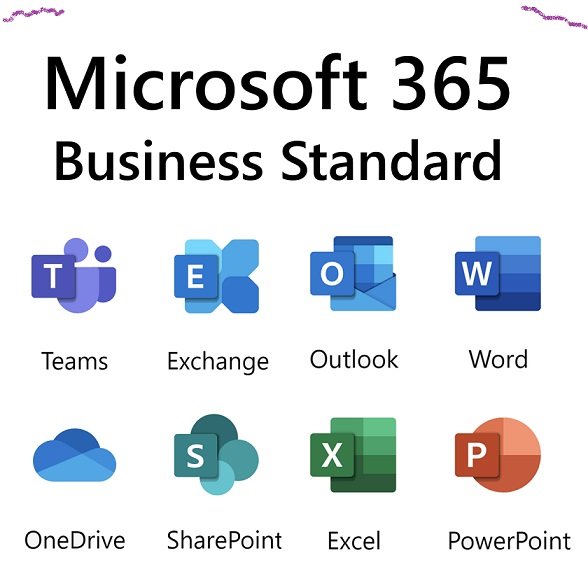Understanding Business Analyst Jobs: A Comprehensive Guide
As businesses expand in complexity, the need for professionals who can analyze data, improve processes, and drive business solutions has surged. Business analysts (BAs) play a critical role in helping organizations make data-informed decisions. In this guide, we’ll explore what business analyst jobs entail, the skills you’ll need, typical career paths, and how to begin a career in this rewarding field.
What is a Business Analyst?
A business analyst acts as a bridge between business operations and IT departments, facilitating communication and collaboration to optimize processes, create effective solutions, and enhance the organization’s efficiency. They interpret data, identify business needs, propose solutions, and ensure successful project implementation.
Key Responsibilities of a Business Analyst
Business analyst jobs come with a variety of tasks and responsibilities, depending on the industry and the specific needs of the organization. However, common responsibilities include:
- Identifying Business Needs: Business analysts are experts in identifying the requirements of a business and the best ways to address them.
- Data Analysis: BAs collect, process, and analyze data to help businesses make informed decisions.
- Creating Business Models: Using data and business insights, they create business models and strategic plans.
- Facilitating Communication: BAs bridge the communication gap between stakeholders, ensuring project goals are met effectively.
- Problem-Solving: Business analysts often troubleshoot issues that arise in processes or systems, devising solutions to improve efficiency.
- Project Documentation: Documenting requirements, processes, and changes is crucial to ensure a project aligns with its objectives and stakeholders’ needs.
Essential Skills for Business Analyst Jobs
To excel as a business analyst, a combination of technical and soft skills is necessary:
- Analytical Thinking: Business analysts must assess and interpret data accurately.
- Problem-Solving: Finding solutions to complex business challenges is a core part of the job.
- Technical Skills: Knowledge of data analysis tools, SQL, Excel, and often programming languages (Python, R) can be advantageous.
- Communication Skills: Being able to convey complex ideas in simple terms is essential for collaboration.
- Project Management: BAs often oversee project timelines, so project management skills are beneficial.
- Attention to Detail: Accuracy in data interpretation, documentation, and analysis is crucial.
Types of Business Analyst Roles
The term “business analyst” is broad, covering various specializations and fields. Here are some popular roles within the field:
- IT Business Analyst: Focuses on technology solutions to meet business needs, ensuring IT aligns with business goals.
- Data Analyst: Analyzes data trends to guide business decisions, often working with big data tools and statistical software.
- Systems Analyst: Examines IT systems to identify improvements, working closely with development teams.
- Functional Analyst: Specializes in optimizing specific business processes, such as finance, logistics, or human resources.
- Product Analyst: Focuses on improving and managing product offerings based on market needs and consumer feedback.
Typical Career Path for Business Analysts
Starting as a junior business analyst, professionals in this field can advance through various roles:
- Junior Business Analyst: Assists senior analysts and performs basic data and process analysis.
- Business Analyst: Takes on larger projects and more responsibility in process improvement and project management.
- Senior Business Analyst: Leads projects, mentors junior analysts, and often has a strategic role in guiding business decisions.
- Business Analytics Manager/Director: Oversees teams of analysts and strategizes company-wide improvements.
- Chief Data Officer (CDO) / Chief Analytics Officer (CAO): Holds an executive role, guiding data and analytics strategies across an organization.
Educational and Certification Requirements
Most business analyst jobs require a bachelor’s degree in fields such as business administration, information technology, finance, or a related area. For higher roles, a master’s degree, particularly an MBA, can be advantageous.
Certifications can also enhance your credibility:
- Certified Business Analysis Professional (CBAP): Issued by the International Institute of Business Analysis (IIBA), the CBAP is a widely recognized certification.
- Certified Analytics Professional (CAP): Offered by INFORMS, this certification focuses on analytics skills.
- Agile Analysis Certification (AAC): Also from IIBA, tailored for those working in Agile environments.
Industries Hiring Business Analysts
Business analyst skills are highly versatile, making these roles sought after across various sectors. Some of the most common industries hiring BAs include:
- Finance: Banks and financial institutions use BAs to optimize financial services and improve customer experience.
- Healthcare: Business analysts help streamline healthcare processes, improve patient care, and optimize resources.
- Information Technology: BAs ensure that software solutions align with business needs, improving development processes.
- Retail and E-commerce: Analyzing consumer data to enhance sales strategies and inventory management.
- Manufacturing: BAs in manufacturing help optimize the supply chain, reduce costs, and improve production efficiency.
Salary and Job Outlook for Business Analysts
The demand for business analysts continues to grow. According to recent studies, business analyst jobs are projected to increase by approximately 11% over the next decade, much faster than the average for most other occupations. Here’s a look at potential salaries:
- Junior Business Analyst: $50,000–$70,000 per year
- Mid-level Business Analyst: $70,000–$90,000 per year
- Senior Business Analyst: $90,000–$120,000 per year
- Analytics Manager/Director: $120,000–$150,000 per year
How to Get Started as a Business Analyst
Breaking into a business analyst role may seem daunting, but a step-by-step approach can make the process manageable:
- Earn a Relevant Degree: Start with a bachelor’s degree in business, finance, IT, or a related field.
- Build Technical Skills: Familiarize yourself with data analysis tools like Excel, SQL, and Tableau, and consider learning basic programming.
- Gain Experience in a Related Field: Roles in data analysis, project management, or operations can provide valuable experience.
- Earn Certifications: Certifications can give you a competitive edge and are often required for higher-level positions.
- Develop a Portfolio: Showcase your work, including data analyses, project management examples, and process improvements.
- Apply for Entry-Level Jobs: Start with junior roles to build experience and expand your professional network.
Final Thoughts: The Rewarding Path of Business Analyst Jobs
Business analyst jobs offer a unique blend of analytical thinking, technical skills, and problem-solving capabilities. This role allows professionals to be at the forefront of business optimization, contributing to strategic growth and efficiency across industries. With a clear career pathway, an ever-growing demand, and excellent opportunities for advancement, business analysis remains an exciting and rewarding career choice.
For anyone interested in combining business acumen with data-driven decision-making, a career as a business analyst offers a meaningful and prosperous journey. With the right skills, a commitment to ongoing learning, and a proactive approach, you can build a successful career in this impactful field.
Read More: Staples Business Cards




